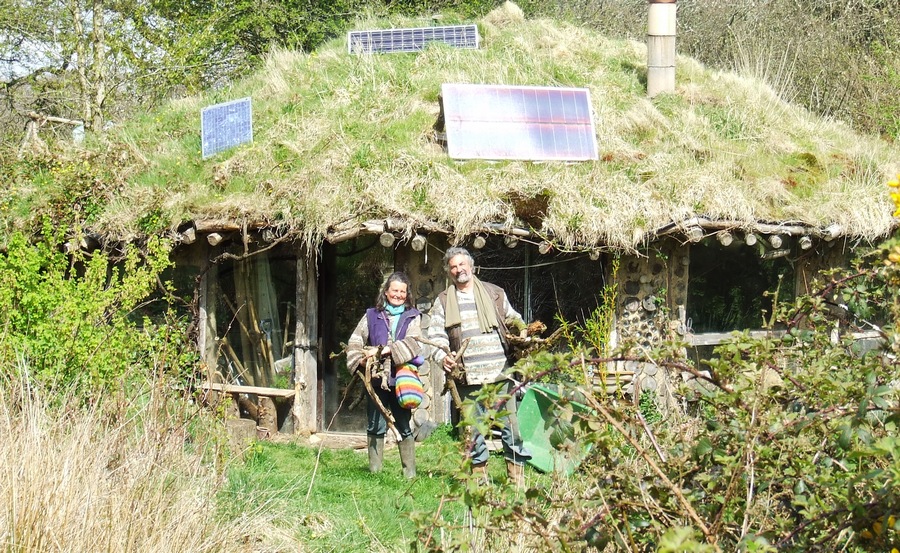At the bottom of a mountain near Newport, Pembrokeshire, 10 adults and seven children make up the small community of Brithdir Mawr. The quaint farmhouse and surrounding holdings are far from anything you’d come across day to day, as the housing cooperative is taking everything we think we know about how to live, and turning it on its head.
Over 25 years ago, Julian Orbach purchased the landholding in Wales and began to build surrounding buildings and set the foundations for what is today known as Brithdir Mawr.
Over a hundred families and individuals have lived in the community over the years, and together they’ve overcome great barriers – including a 10-year court battle with the local council over buildings which were built without planning permission.
The legal fight led to the adoption of a groundbreaking Welsh government scheme, the One Planet Development Policy, in which people can circumvent tight planning rules in order to build an eco-home in the countryside which allows them to survive on the land. Since being launched in 2010, over 40 households have signed up to the scheme.
Now, the community which launched a new way of living is facing closure as the landlord, Orbach, is looking to sell the land. But the residents of Brithdir Mawr plan on equipping their less-than-conventional methods to survive.
A Right To Property?
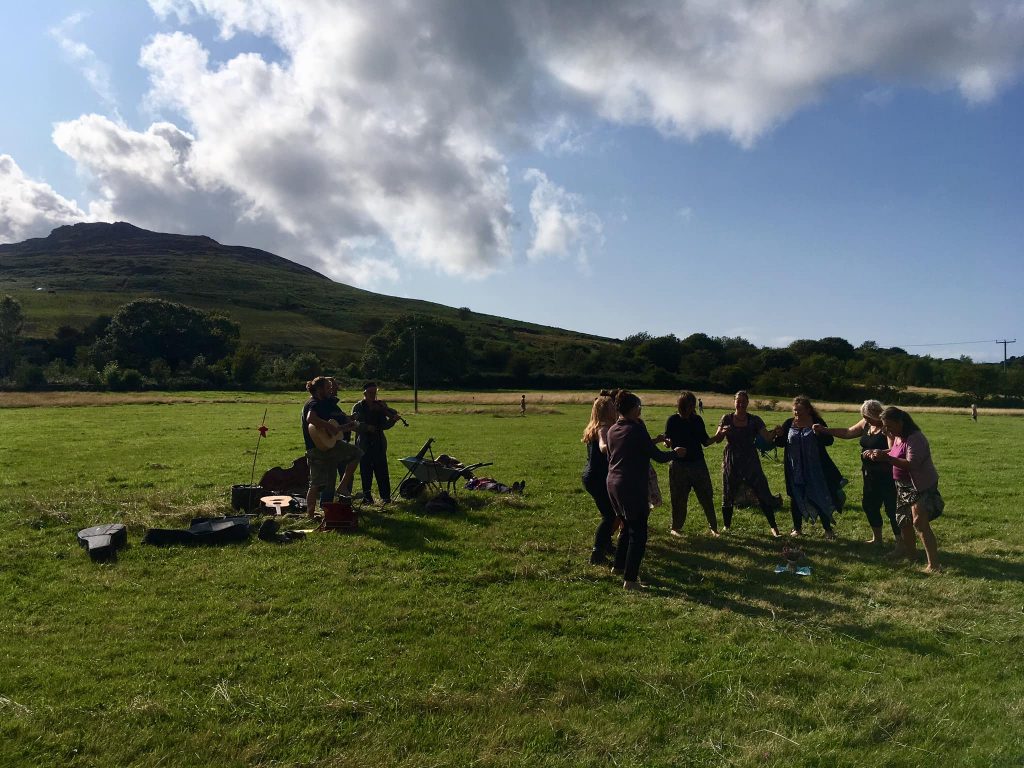
Image Credit: Lea Trainer
Article 1 of the First Protocol to the Human Rights Convention says that we all have the right to peaceful enjoyment of our property. But things aren’t always straightforward, especially during a housing crisis. Most of us are renters, which means we have to adhere to contracts and we may never have a fully-secure home.
Because the people living on Brithdir Mawr are renting, and because their landlord wants to sell the land, they are now looking for a way to raise one million pounds needed to take over control of the property. Their plan? To set up a trust which would allow people across the world to buy community shares and allow the community to continue.
“We’re offering community shares, so not one single person is ever going to benefit from this,” resident Lea Trainer, who has lived at Brithdir Mawr with his family for three months, explained to EachOther.
But is it an easy route out? That’s not how Lea and the others see it.
“We’ve been asked why we’re asking the public to buy our house for us, so we have the privilege of chilling out on the land, but it’s not about us. It’s about safeguarding the land for future generations to prosper from, as opposed to just us,” he said.
What Is It Like To Live At Brithdir Mawr?
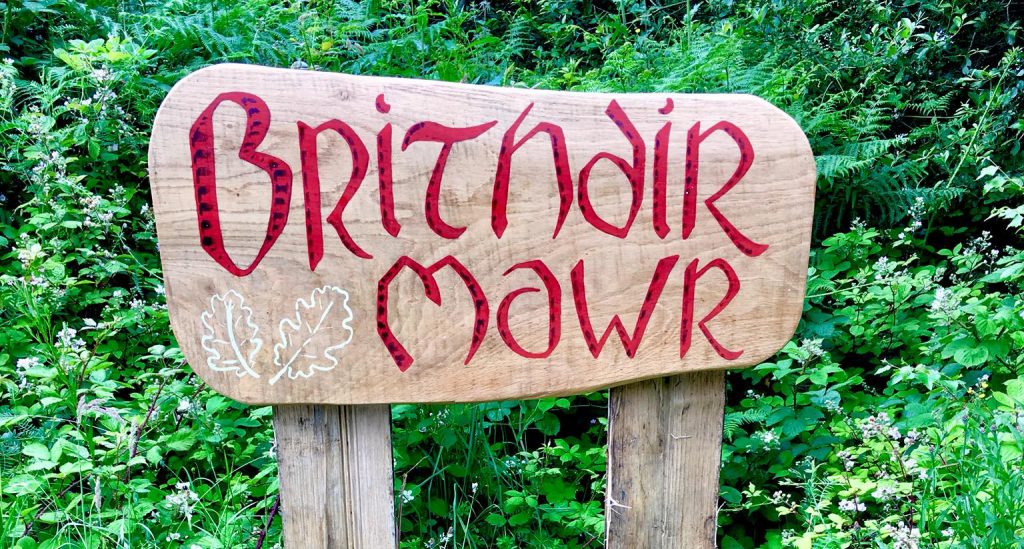
Image Credit: Lea Trainer
There is no doubt the residents of Brithdir Mawr have an innovative approach to problem-solving, but they also have an innovative approach to living.
Part of what makes the community so special, and worth preserving, according to Lea, is the way of life that it offers. At Brithdir Mawr, residents live a low impact but wholesome life.
That means they largely survive off food grown on the land, they use renewable forms of energy and they raise their families outside of sometimes oppressive and mainstream expectations.
“People can share resources, share skills, learn about nature, ways of living and become more connected to the Earth and only extracting what you need from the Earth,” explained Lea.
“We have 85 percent self-sufficiency, but we still buy stuff in. The authenticity of food is important, we have to turn away from mainstream commercial farming, looking at what your food has had in it, how far it has travelled.”
The Three Pillars
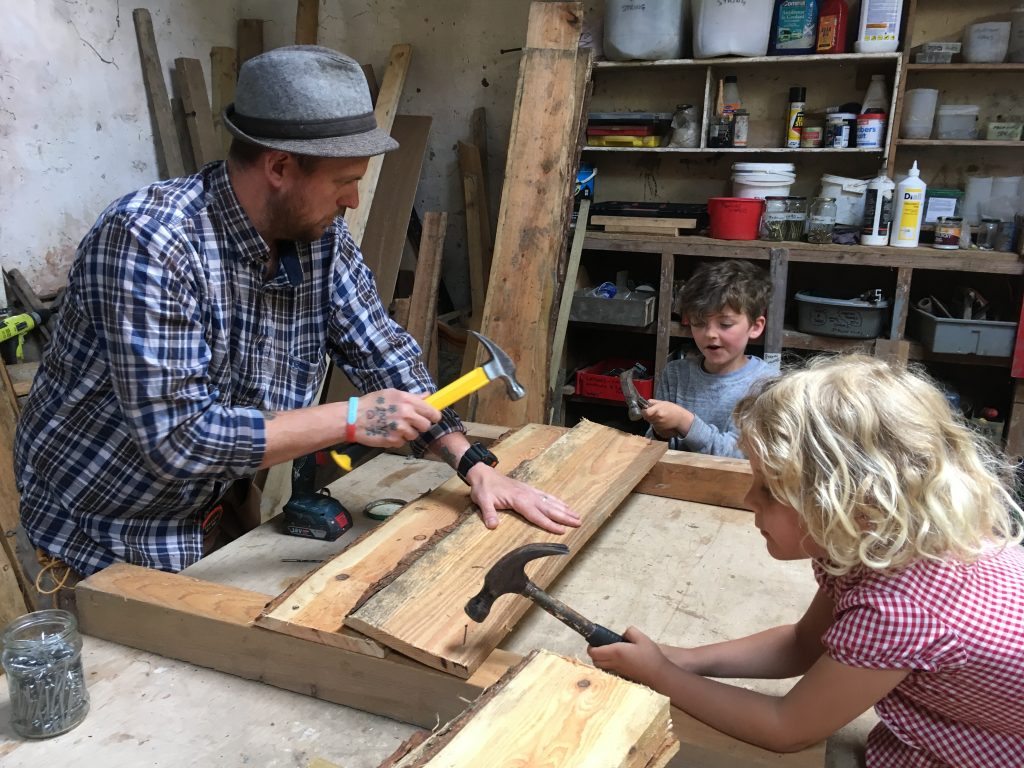
Image Credit: Lea Trainer
The three pillars – community, sustainability, and education – are at the heart of everything the residents of Brithdir Mawr do.
On weekdays, they all eat together as a community. Many of the children are homeschooled, though some go to the school in the local village. One week a month, the residents invite volunteers from across the world to come to Brithdir Mawr and find out how they can live a more sustainable life.
Lea and his family were living in “the hustle and bustle of London”, he was working as a project manager and his wife was a school teacher, when he realised that “this wasn’t the life for him”. The experience of living in Brithdir Mawr has been incomparable for his family, especially his children.
“From my wife and I’s perspective, we believe that as individuals, we can only take our children so far with the experiences that we’ve had in life. So we can only impart some knowledge of the world, and by being around others quite closely, they’re able to share their knowledge and experiences,” Lea explained.
Instead of the typical life many children across the UK lead, Lea’s children are homeschooled and get to learn about other things, such as how to build a wall and the butterflies and insects that roam on the property.
“A lot of us don’t allow children to express their personalities freely, where here the ethos is that a child is never judged, no matter what they do.
“Allowing them to be free, allowing them to express their feelings, to say what they feel, and communicate with such a variety of different people and personalities, and to never be judged and held back on. It is fantastic,” Lea added.
The Future Of Brithdir Mawr Community
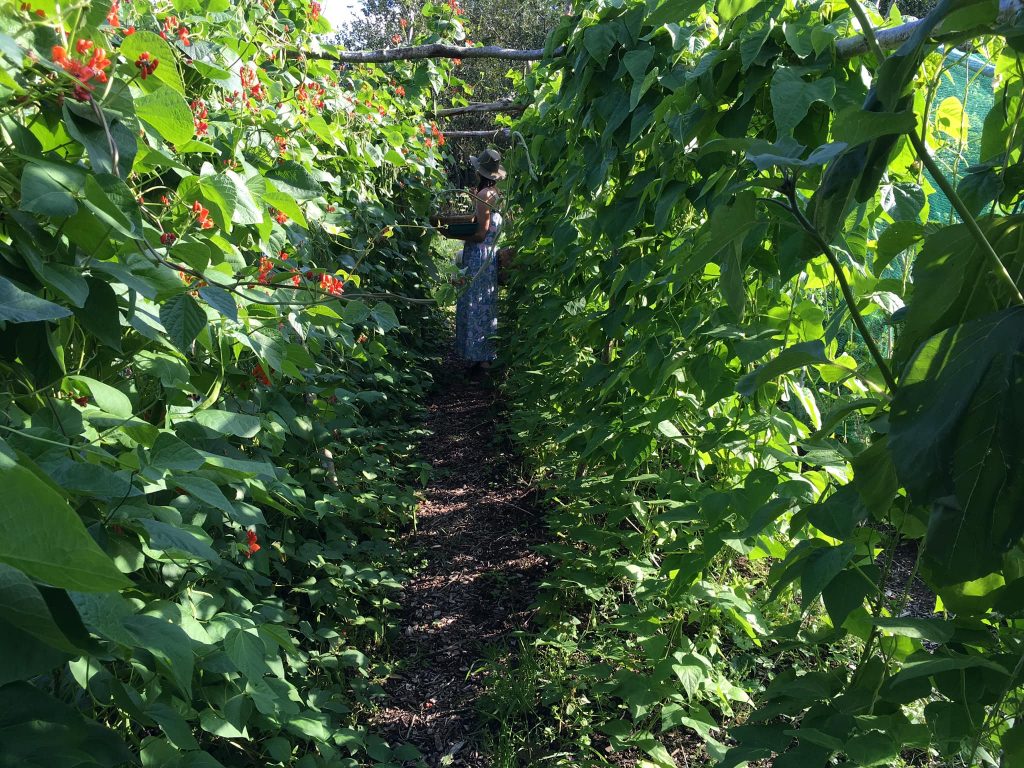
Image Credit: Lea Trainer
If Brithdir Mawr hopes to continue, then Lea and the other residents must crowdfund the one million pounds needed to secure the land by the end of the year.
Lea is dubious about their chances of being able to raise that money in one stint, but the residents are in talks with the landlord and original founder about crowdfunding in stages.
If they can’t reach an agreement, then the future of the community will be left in “uncertainty”.
However, Lea and the residents are hopeful that, with the help of shareholders and crowd funders worldwide, they can secure the property.
Then there are big changes on the cards – including the development of a Welsh language centre, a community-supported agriculture scheme, and a community care farm, which would be available to help locals with disabilities and mental health issues.
Lea and the other residents hope that the “lost tribe of Wales” will continue to “flourish”.
Want to learn more on this topic?
- Learn about the right to peaceful enjoyment of property with our infographic poster.
- Read an explainer on the environment and human rights.
- Take a look at a piece on the importance of having a place to call home.

